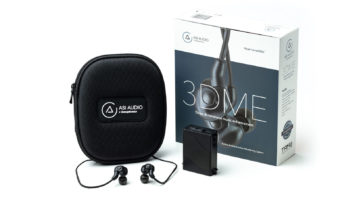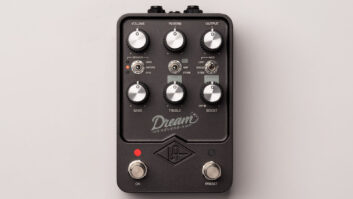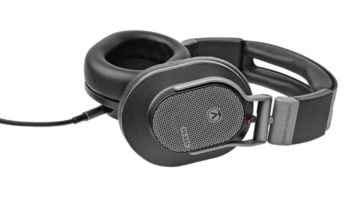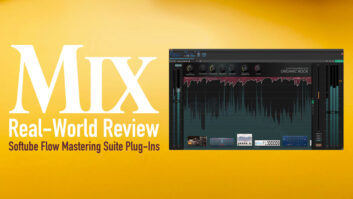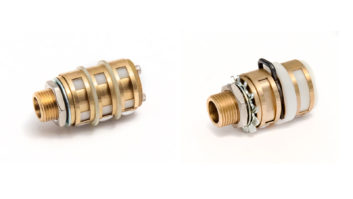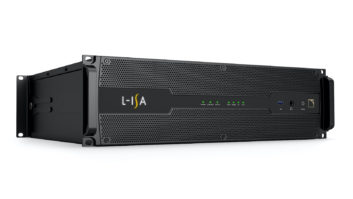As of late, Newfangled Audio has been releasing some interesting plug-ins that are distributed by Eventide—which comes as no surprise because Newfangled founder Dan Gillespie is a former engineer at Eventide. The Elevate Mastering Limiter (as reviewed by Rich Tozzoli in Pro Sound News in February 2018) remains available, but its component pieces have been broken up into individual plug-ins, making the Punctuate, Saturate and EQuivocate modules available for tracks and busses. Aided by AI, the plug-ins in the Elevate Bundle are capable of powerful functions that reach beyond the scope of conventional plugs.
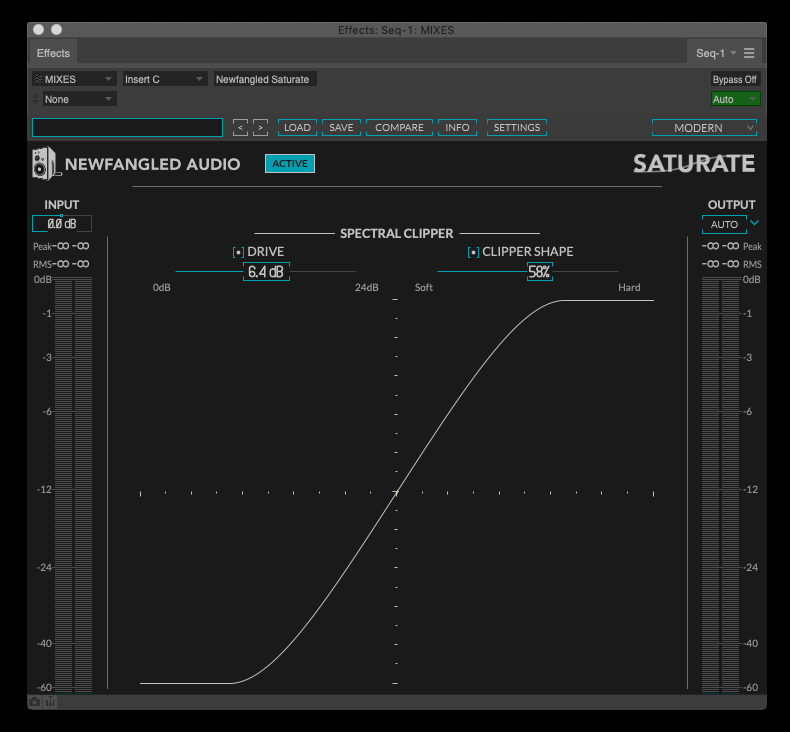
Saturate
Saturate is a spectral clipper in the Elevate Bundle with a dual personality that can do soft saturation or hard clipping; uniquely, it allows the tailoring of a smooth transition between those two states. Despite great flexibility, this plug is very easy to use, as there are only two controls: Drive and Clipper Shape.
Continuously variable Clipper Shape allows fine-tuning response, as the visual indicator moves from a smooth “cursive” S to a linear shelved-off S. This allows gentle saturation, or saturation that clips hard on just the peaks, or constant hard clipping, with exacting control of the transition point.
Drive allows up to 12 dB of processing; when you push Drive harder, your signal moves up the processing curve’s S and indicates when you’ve reached the hard clipping zone. Metering is the same as in EQuivocate, while a defeatable Auto mode ensures unity gain even under heavy saturation.
This all probably seems a bit pedestrian, but there’s sophisticated signal processing going on via artificial intelligence that somehow manages to keep your signal’s tonal balance largely intact, whether subtly saturated or over-the-top distorted. Traditionally, such processing yields unwanted piercing high end, excessively tubby low end, or murky low-mids, but without many side effects, you’ll find Saturate more useful than similar processors.
Review: Newfangled Audio Elevate Mastering Limiter, by Rich Tozzoli, Feb. 1, 2018
For mixes, the ability to lightly saturate allows additional detail, more warmth and a little in-your-face-ness without conveying dirt, aggression or woofi-ness. The process sounds more like fullness, analog-ness and presence—qualities that can benefit most any mix. Barely audible changes are actually quite visceral and profound here.
Conversely, now that Saturate is easily used as a channel insert (or on a subgroup/bus), you can drive that response well beyond saturation and into some grungy dirt, all without the typical nasty complications. Drum busses are a natural choice; you might choose parallel processing to preserve punch, but don’t be afraid to try complete signal processing with careful adjustments to Drive and Shape. Without the typical tonal mangling, you might just find yourself discovering new tones and simpler methodologies.
Beyond drums, there are plenty of other useful applications for Saturate, like getting a vocal saturation for a “tubes ’n’ tape”-type sound, bass guitar plumpness or growl, subtly increasing synths’ presence or destroying them with clipping, and adding life and character to blandly recorded guitars (subtly with amp’d/mic’d ones or more heavily with DI’d/virtualized ones).
But best of all is the ability to massage clean acoustic instruments with more consistency and attitude, without getting fuzzy, obviously processed or changing their tone. I’m finding this really helpful when mixing wimpy instrumental tracks or trying to please persnickety bluegrass/folk players who want great tone but don’t want to sound the slightest bit unnatural.
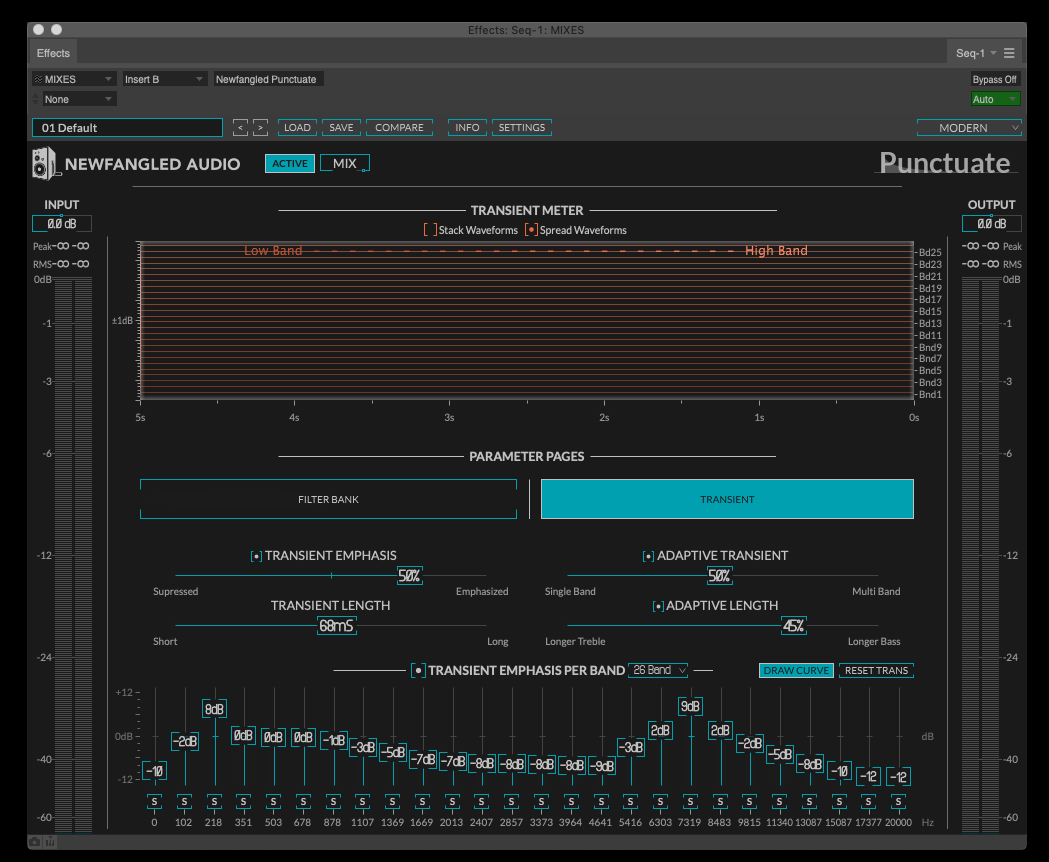
Punctuate
Newfangled has applied the technology of the EQ section in Elevate (with its 26 frequency bands and MEL-based spacing) to Punctuate, allowing excellence at typical transient-shaping uses and some new functions as well.
Primarily, there are 26 frequency band sliders that can be arranged to either suppress or enhance that band up to 12 dB. Two big time-savers are that you can choose to draw a curve across these faders (Draw Curve) or reset them (Reset Trans). There’s also a global Transient Emphasis control ranging from -100 to 100 (for de-emphasizing or emphasizing). You can choose a Transient Length to help tune in, as measured in milliseconds, but the artificial intelligence that’s built in via Adaptive Transient (continuously variable from single band to multiband) and Adaptive Length (also continuously variable from all the same lengths to different lengths) can do much of this work for you. Parallel processing is available with a Mix control. Visually, the same thorough metering found in Saturate is here, but there’s also a Transient Meter that shows only transients and their general frequencies over time.
The obvious use here is to bring drums out of a mix, which is now quite possible without significant artifacts. You can hone in on the transient attacks and their frequencies and bring them out (or suppress them) without pulling up neighboring signals like EQ or even dynamic EQ would. Kicks are easy, toms a little tougher, and snare can be trickiest to isolate, depending on its tone. In certain mixes, you could even pull up signals not as transient as drums/percussion, like pianos, upright bass and plucky guitars.
Mix: Newfangled Audio Elevate Bundle Review, by Michael Cooper
Now that Punctuate is a channel plug-in, too, more apps come to the surface. Take good old snare, for example; you can increase the snare’s fundamental and primary harmonics while subduing the attack of high-hat bleed or neighboring tom-toms. Slappy bass guitar not popping enough? Hone in on the thumb pops and finger slaps separately, and balance to taste.
That’s all good, but Punctuate is worth its price for one simple function: the ability to manage transients in a full mix with a degree of separation not quite possible without smart AI helping out.
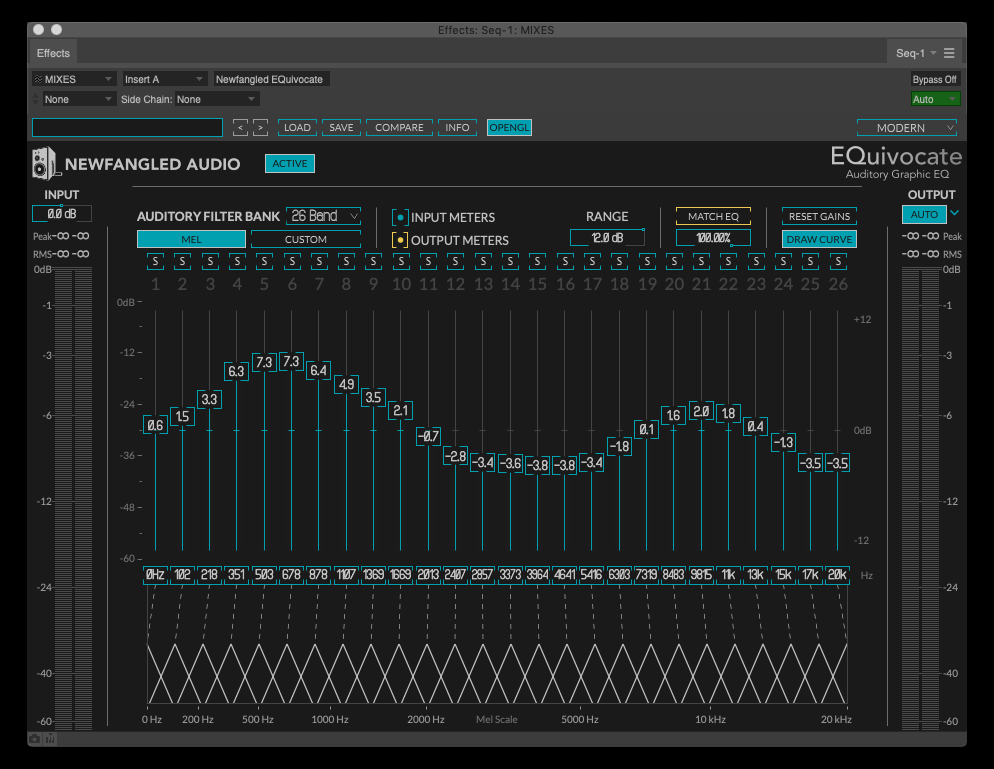
EQuivocate
The most straightforward processor of the trio in the Elevate Bundle is what looks like a simple equalizer, but there’s much more than meets the eye. The 26 frequency bands are triangular in shape and in a MEL spacing that is reportedly more natural to our hearing than 1/3-octave spacings. (Oddly enough, the bands are very wide in the low frequencies and quite narrow with high frequencies.) For power users, the bandwidths are reconfigurable (via Custom), allowing very specific processing. Your EQ curve can be set a fader at a time or drawn in (Draw Curve), and is easily resettable (Reset Gains). A MatchEQ function brings AI help in matching the tone of your signal to a target source. An Auto level control maintains unity gain even during significant EQ’ing. Metering offers peak and RMS levels at both input and output.
The Full Elevate Kit
Even though the individual components now have some very cool uses, utilizing Elevate for mastering remains a quick and convenient way to level up. The modules are locked into order (equalizer>limiter>transient module>saturation), but the simple interface makes achieving a competitive sound quick and relatively easy. Optional dithering, automatic level control and quick access to the adaptive processes’ severity makes dialing in hot levels with retained transients a lot easier than it’s ever been.
All things considered, I think the Elevate Bundle may be misnamed. The ability to use individual modules as track inserts, L-R mix processors, or subgroup processors makes this package most attractive and flexible for those seeking the advantage of AI-aided adaptive processes for extreme processing beyond the scope of typical mastering work.
Newfangled Audio • www.newfangledaudio.com/elevate
Eventide • www.eventideaudio.com/products/third-party-plug-ins/mastering/elevate-bundle
